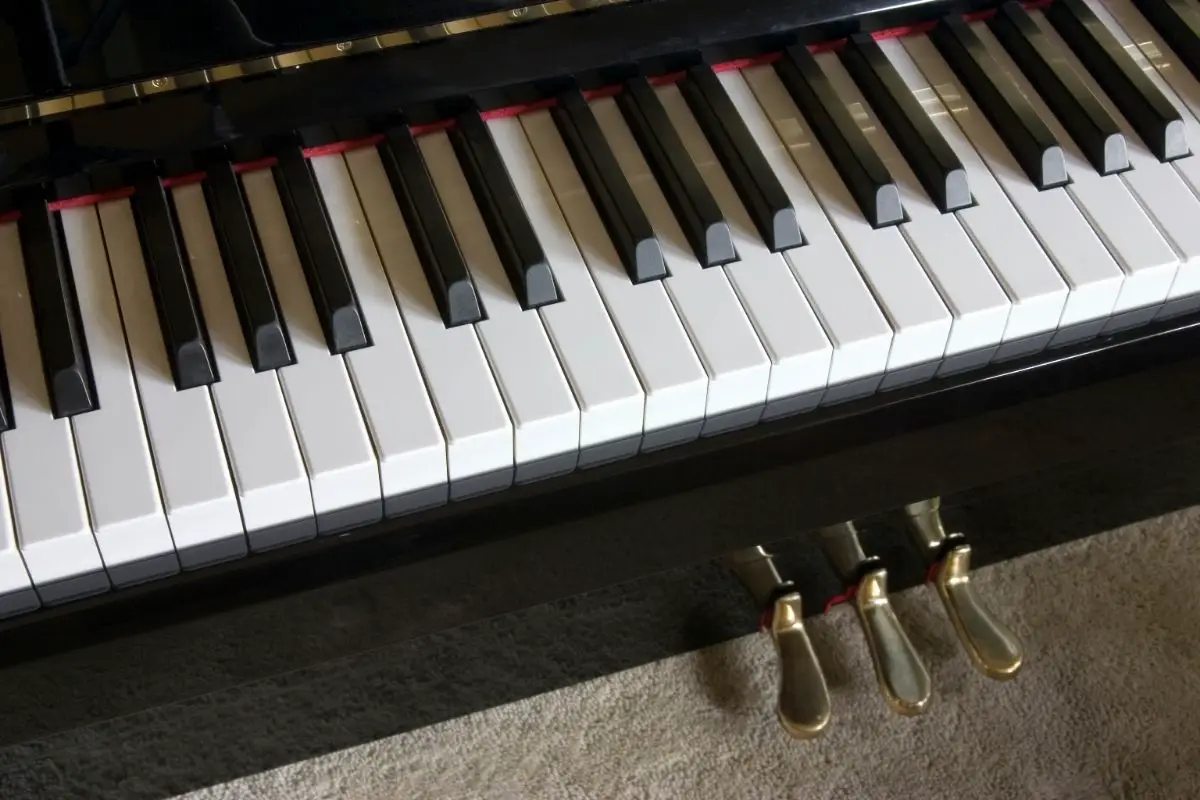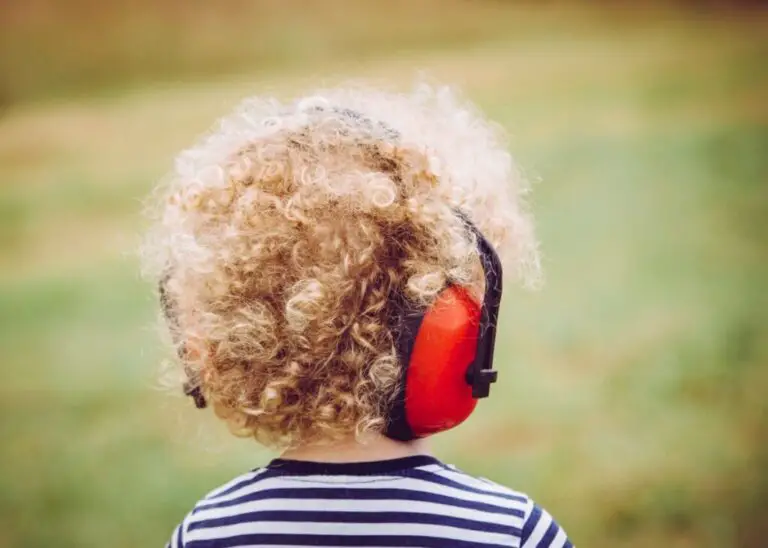Side Effects of Sleeping With Your Headphones On
Sleeping with headphones on can seem like a convenient way to listen to music or white noise as you fall asleep, but it can also have some potential side effects that you should be aware of. So, what are the side effects of sleeping with your headphones on?
Many potential side effects are associated with sleeping with headphones, including Necrosis, Strangulation, Tinnitus, Hearing loss, Ear infection, Hyperacusis, and Otitis Externa.
Here’s a closer look at the potential risks of sleeping with headphones on:
11 Side Effects Of Sleeping With Headphones On
Necrosis
Sleeping with headphones can be uncomfortable, mainly if you sleep on your side. One potential risk is necrosis, in which body tissues die due to a lack of blood flow.
Headphones could exert pressure on the ears and disrupt blood circulation, leading to necrosis. You should monitor your ears for signs of necrosis.
To avoid this, be sure to pick comfortable headphones when you sleep. If you feel any pressure or pain, that’s a sign you might not have the right ones.
Earwax Build up
The ears naturally produce earwax to protect the ear canal from harmful foreign objects. However, too much earwax can cause a build-up that can clog the ears and impair hearing.
Prolonged use of headphones may contribute to earwax build-up. If you notice wax on your headphones in the morning, you may also have an excess of earwax in your ears.
Regular ear cleaning can help you avoid this issue.
Strangulation
It is advisable to use Bluetooth or wireless headphones to avoid the risk of tangled wires. Wired headphones can quickly become tangled, which can be frustrating and time-consuming to untangle.
You can eliminate this risk and use Bluetooth or wireless headphones. This helps you enjoy more convenience and freedom of movement.
Tinnitus
Tinnitus is a medical condition characterized by noise in the ears. It can be caused by prolonged exposure to loud noise, including noise from headphones.
Tinnitus can cause ringing, roaring, or buzzing sounds in the ears or head. This condition is typically caused by damage to the hair cells in the cochlea, which are responsible for converting sound waves into nerve signals interpreted by the brain.
When these nerve signals are not received, the brain may create its nerve signals to compensate for the missing input from the damaged hair cells.
Hyperacusis
Hyperacusis is a condition in which a person becomes highly sensitive to normal sounds from their environment. Prolonged use of headphones may contribute to the development of hyperacusis.
Hearing loss
One of the main risks of sleeping with headphones on is the potential for hearing loss. You may be exposing your ears to damaging noise levels when you listen to music or other sounds at a high volume.
Over time, this can lead to hearing loss and other problems such as tinnitus (ringing in the ears). To reduce the risk of hearing loss, it’s essential to use headphones at a moderate volume and to avoid using them for extended periods.
Ear infections
Sleeping with headphones on can also increase the risk of ear infections. You may trap moisture and bacteria in your ear canal when you wear headphones.
By regularly cleaning your ears, you can avoid many of the problems coming from this. It would be best if you also stuck to over-the-ear headphones, not in-ear earbuds to avoid things digging into your ear while you sleep.
Otitis Externa (Swimmer’s Ear)
Otitis Externa is a condition that causes redness and swelling of your external ear canal. It is caused mostly by repeated exposure to water, which is why it’s known as “Swimmer’s Ear.”
If you sweat with headphones on, you’ll increase your odds of getting this. So be sure to pick breathable headphones to prevent this from happening.
Affects Your Brain
There is a concern that headphones may cause brain damage due to the electromagnetic waves they generate. The ear is connected to the brain through sensory organs, and an ear infection could also affect the brain.
However, it’s important to note that more research is needed to fully understand headphones’ potential risks and effects on the brain.
You should stick to simple ambient noise or soft music when using earphones. Anything that encourages you to reach deep sleep and relax should be prioritized. Save your loud music for times you can really appreciate it.
Sleep disruption
Wearing headphones while you sleep can disrupt your sleep. The music or noise interferes with your sleep patterns, leading to poor sleep quality and daytime fatigue.
To improve your sleep, creating a relaxing sleep environment is crucial. So avoiding listening to music at high volumes while sleeping.
Pressure on the ears
Wearing headphones while you sleep can also put pressure on your ears. The headphones may press against the ear and cause discomfort, especially to those that sleep on their side.
Choosing comfortable headphones that fit snugly without causing too much pressure is vital to reduce stress on the ears.
Your sleeping position might also impact the kind of headphones you can wear. This is why wireless earbuds (those that go over the ear) are often preferred.
Safety and comfort tips when sleeping with headphones
Listen to sleep sounds (not awake sounds)
If you are sleeping alone and want to listen to music or noise to help you sleep, consider using a radio or TV instead of headphones. Many television subscriptions offer music channels. You can also find more sleep content on YouTube.
Tuning into one of these channels can provide a similar listening experience to headphones without potential risks and side effects. Alternatively, you can use a radio to listen to music.
You can also consider listening to a white noise generator. There are many smartphone apps, such as Calm or Headspace, that support this.
Whatever you pick, stick to a library of sounds and music that makes you sleepy. While your favorite tunes from your playlist can relax you, not all are great for helping you sleep.
Be picky with your headphones
If you use headphones to listen to music or noise while sleeping, pick headphones specifically designed for sleeping. These headphones may be more comfortable and less likely to cause problems such as pressure on the ears or earwax build-up.
Wireless headphones are a good option because they do not have cords that can become tangled while you sleep. By choosing headphones that are specifically designed for sleeping, you can minimize the potential risks and side effects of listening to music on headphones while you sleep.
An alternative to using traditional headphones while sleeping is earbuds embedded in a headband, also known as headband earphones. These earphones may not have the same sound quality as conventional headphones, but they are generally more comfortable, particularly for those who sleep on their side.
A pair of sleep headphones can be a good option for listening to music or noise while sleeping, especially if you want a more comfortable and less disruptive listening experience.
Headphones Safety Tips
- It would be best if you switched to big headphones instead of using small earphones that fit directly in your ear.
- It is best not to share headphones with others.
- Changing the rubber or sponge covers on your headphones at least once a month is recommended to ensure cleanliness and optimal performance.
- It is recommended to keep the volume at about 40 percent to protect your hearing.
- It is a good idea to give your ears a break from headphones by not using them daily.
- Using quality headphones with a noise-canceling feature is recommended to listen to your music comfortably at low volume.
Why Do People Listen to Music With their Headphones While Sleeping?
Boosts Sleep Quality
Selecting music that helps you feel relaxed and stress-free can improve the quality and quantity of your sleep. I fall asleep faster and stay longer when I listen to my favorite tracks through headphones. It seems to have a similar effect to lullabies when I was younger. When listening to music while sleeping becomes a routine, it can positively affect sleep.
The melody from soothing and relaxing songs, combined with the habit of putting on headphones before sleeping, can signal to the body that it is time to sleep. As a result, I find it much easier to sleep once I put my headphones on, as my body has become trained to associate this with sleep.
Relaxation
Music can be a relaxing and calming experience, mainly when played at a low volume that is still audible. The soothing sounds can help to lower the heart rate and encourage the body and mind to rest.
On a biological level, music can be very soothing. However, different people may find different types of music relaxing. For example, some may find classical or jazz music calming, while others may find heavy metal to have a similar effect. Ultimately, personal taste plays a significant role in determining what music is relaxing for an individual.
Fall Asleep Faster
It’s common to have a lot of thoughts racing through your mind after a long and difficult day, such as the need to pick up kids from school, frustrating interactions with coworkers, and the week’s to-do list. These thoughts can occupy your mind and make it hard to fall asleep.
Music can help by providing a distraction and giving your brain something else to focus on. As a result, you may be able to fall asleep faster if you listen to music as you lie down in bed at the end of the day.
Music Makes You Feel Good
Listening to enjoyable music can stimulate the release of “feel-good” hormones like serotonin, which can help to reduce stress and improve mood. Low levels of serotonin are often associated with depression.
Engaging in activities that boost serotonin levels, such as listening to music, can help improve happiness and reduce depression. It is generally easier to fall asleep in a good mood.
Tips for picking a good pair of headphones for sleeping
- Stick with headphones that work with your preferred way of sleeping. Different sleeping positions might benefit from different headphones.
- Find headphones that can last for a minimum of eight hours on a single charge. Limited battery life might cause your music to stop abruptly.
- Find breathable headphones with good air circulation. Avoid headphones meant to “seal in the sound,” like noise-canceling headphones.
Conclusion
In conclusion, sleeping with headphones on can have potential side effects, including hearing loss, ear infections, sleep disruption, pressure on the ears, and the risk of falling or being pulled. To reduce the risks associated with sleeping with headphones, it’s essential to use them at a moderate volume, keep your ears dry and clean, and create a relaxing environment.








